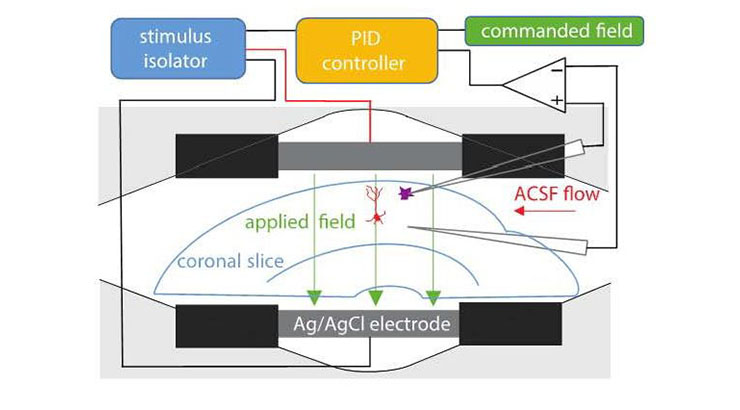System and Method for Modulating Spreading Depression and State-based
ID# 2017-4681
Technology Summary
Spreading depression or depolarization (SD) is a large-scale pathological brain phenomenon related to migraines, stroke, hemorrhage and traumatic brain injury. SD manifests as a slow (2-5 mm/min) traveling wave front of neuronal depolarization. SD propagates across grey matter extruding potassium and other active molecules. The wave front triggers transient seizures as it encounters fresh brain tissue and leaves in its wake transiently inactivated and swollen brain tissue. The subject invention consists of a method of modulating SD in the patient’s brain by administering stimulation to affect the speed of SD wave propagation and arrest its early spread. The electrical current required to suppress SD is the opposite to that required to suppress seizures. The technology must be state dependent, to deliver the current of the correct polarity for the correct pathological phenomenon.
Application & Market Utility
The subject invention has been reduced to practice using brain slices of rats. Laboratory results demonstrate the feasibility of specific, reproducible stimulation parameters that control and prevent SD. Results show no overt evidence of seizures as an unwanted side effect. The results of these experiments has been publicly disclosed in a 2018 peer-reviewed publication in Scientific Reports.
Next Steps
The researchers continue to advance this research under a multi-year National Institutes of Health (NIH) grant.

